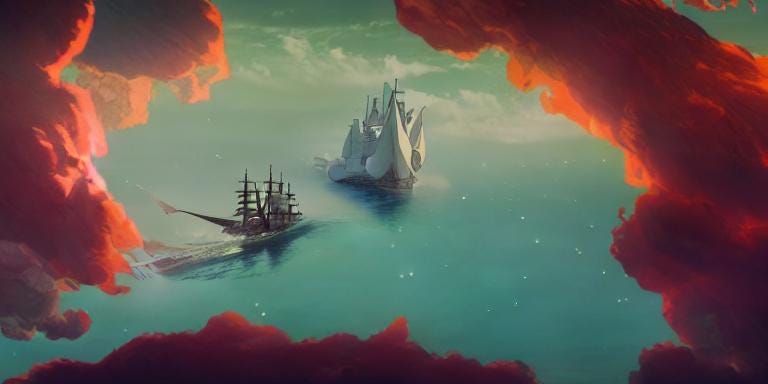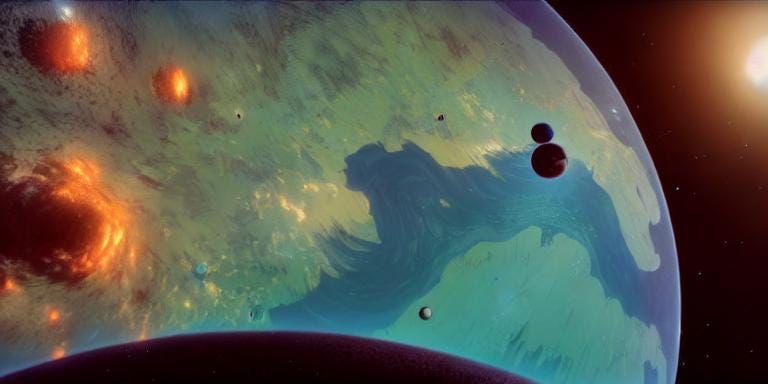Linear exploration goes thus: you step out of our house and walk to the village center. Maybe it takes you ten minutes. Maybe it takes you two hours, but the end of the road is in sight even before you start your journey. It might not even feel like a journey, but that’s about as far as you want to go.
The next generation isn’t satisfied with the village. It wants to walk or ride to the nearest town. A day’s ride and they’re done. The next generation finds the town boring and wants to go to the city. It takes them a few weeks of riding through farm and forest and after an adventure or two, they’re ready to start their lives afresh.
Another generation, another journey. Why stop with the city? Why not cross the oceans into a new continent? That too shall be done.
By the time the fourth generation comes around, the water and earth are too constraining and the air beckons as the next frontier of exploration; beyond the air lies the vast expanse of space. There’s no air to breathe or water to drink, but the linear mind thinks space is merely an extension of land, water and air.
They would be wrong. We aren’t accidental inhabitants of the earth. It’s not merely our home. In fact, it’s our own Solaris and to assume that we can leave it for another world is the greatest error that linear thinking has ever fallen into. As the URL to this article on “There’s no Planet-B” says: we will never be able to live on another planet. Mars, for example:
While human-led missions to Mars seem likely in the coming decades, what are our prospects of long-term habitation on Mars? Present-day Mars is a cold, dry world with a very thin atmosphere and global dust storms that can last for weeks on end. Its average surface pressure is less than 1 per cent of Earth’s.
Do we really think we can go forth and multiply on this cold, desert landscape? You might have heard of the saying “growth for the sake of growth is the ideology of the cancer cell.“ Expansion could be worse: “expansion for the sake of expansion is the ideology of the nuclear reaction.”
If growth is the essence of capitalism, expansion is the essence of empire. If I were forced to make a choice, I would say imperialism is worse. Infinite expansion on a finite planet is the contradiction at the heart of human imperialism. We know we have reached the limits of that ideology.
Nonlinear exploration is another matter: who knows what we might discover if we embed ourselves deeper into the earth as we also explore the stars.








